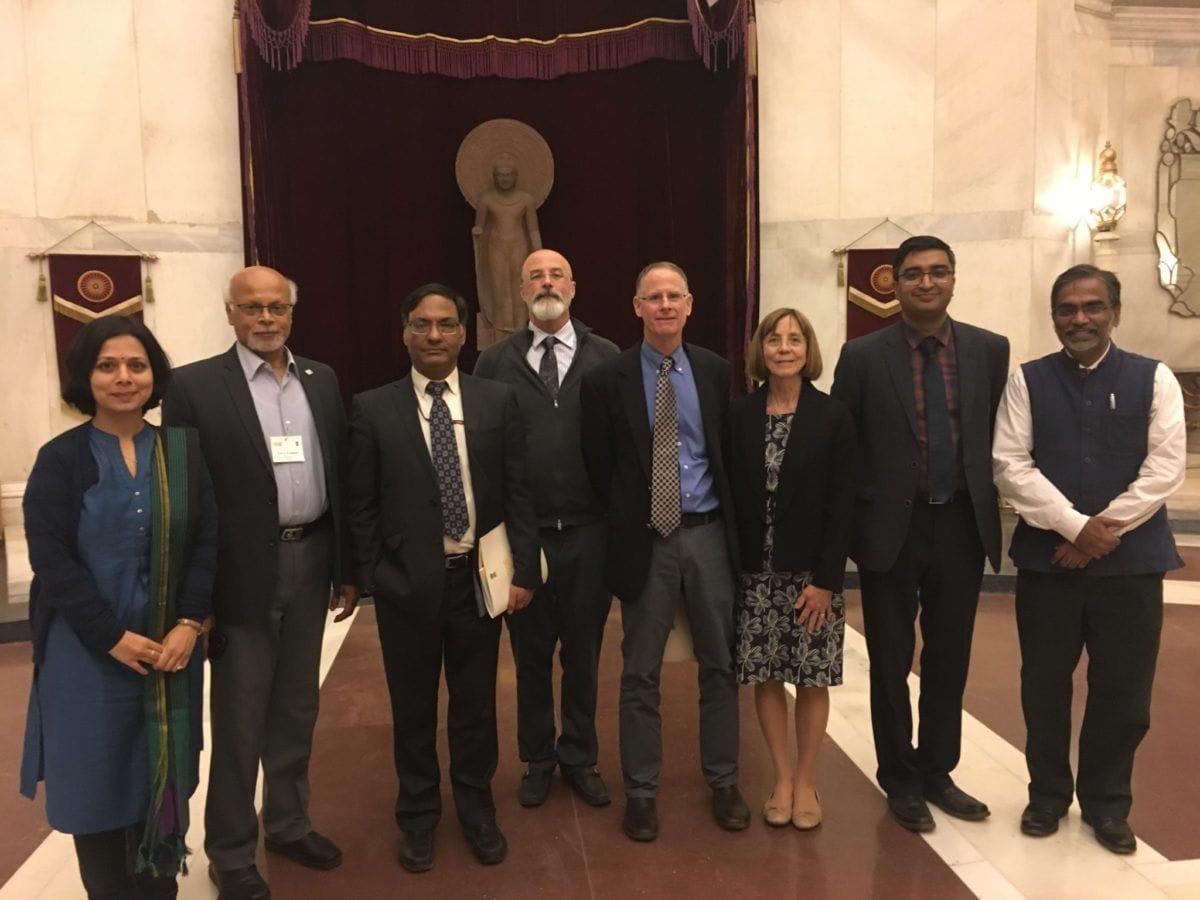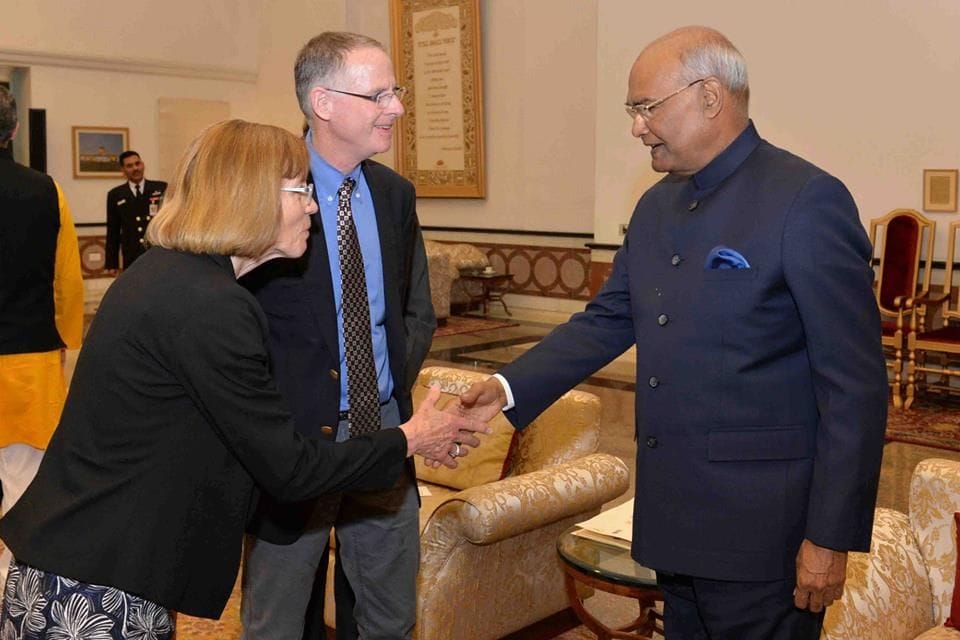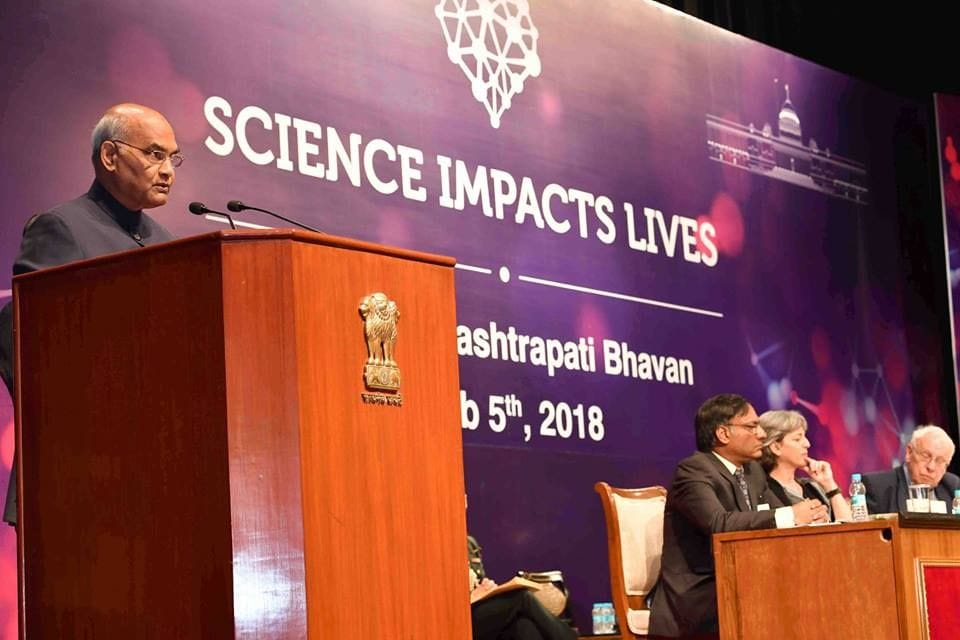On February 5, a delegation of ACS editors and staff attended the exclusive Nobel Prize Series summit held at the Rashtrapati Bhavan, the official residence of the President of India. This prestigious event—an initiative jointly hosted by President Ram Nath Kovind and the Indian Ministry of Science & Technology—is part of a national effort to […]


On February 5, a delegation of ACS editors and staff attended the exclusive Nobel Prize Series summit held at the Rashtrapati Bhavan, the official residence of the President of India. This prestigious event—an initiative jointly hosted by President Ram Nath Kovind and the Indian Ministry of Science & Technology—is part of a national effort to engage citizens with science education and research. In addition to the ACS editors and staff in attendance (the sole scholarly publisher represented), invited speakers included Nobel Laureates, Fields Medalists, government officials, and top researchers from universities across India. This notable group of officials and scholars were charged with developing an action plan to build a more robust educational system that will enhance scientific knowledge across the subcontinent.
Professor Kirk Schanze, Editor-in-Chief of ACS Applied Materials & Interfaces, Professor Vincent Rotello, Editor-in-Chief of Bioconjugate Chemistry, Professor Krishna Ganesh, Co-Editor of ACS Omega, Professor T. Pradeep, Associate Editor of ACS Sustainable Chemistry & Engineering, along with Drs. Anirban Mahapatra and Deeksha Gupta, ACS Publications staff, represented the Society at the event. Professor Ashutosh Sharma, who has served as the Secretary of the Department of Science and Technology since 2015, and serves as Associate Editor of ACS Applied Materials & Interfaces, extended the invitation to the ACS delegation.

“I think the time and effort put into this meeting speaks worlds about how seriously India takes its role in the global research community,” said Professor Rotello of the event. “Every journal wants a publication from a future Nobel Prize winner, and that’s why I’m here.”
Immediately following the Nobel Prize Series event, the Indian government announced that it will offer nearly 1,000 lucrative fellowships for PhD students in the sciences who would otherwise go abroad for their advanced education. It is the Kovind administration’s hope that these young researchers will eventually join the 20 planned “institutes of eminence,” which will be established using a combination of private and public funding.

“It is an exciting time for India to heavily invest in science, by bringing excellent scientists to the country attracting them by providing a conducive ecosystem,” said 2015 Nobel Laureate in Chemistry Tomas Lindahl, who spoke on a panel of other prominent academics on how to best link education and research with greater society.
Researchers in India are a vital part of the global research community, accounting for 7.5% of ACS Publications journal submissions. We would like to extend our thanks to President Kovind, the Ministry of Science & Technology, and the organizers of the Nobel Prize Series for this unique opportunity to better understand how scientific research is evolving globally.